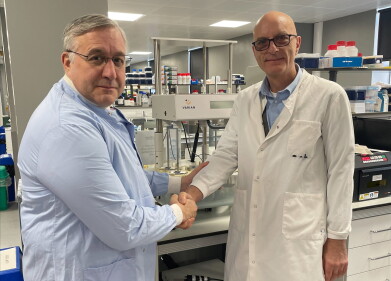News
Will Global Repository for Cell Engineering improve Openness and Collaboration?
Feb 16 2022
"Engineering biology is not rocket science. It is much, much harder. And because of that it is imperative that we do it more openly and more collaboratively" Natalio Kasnogor
An international team led by Newcastle University has developed a species and strain database that uses cell barcodes to monitor and track engineered organisms and also molecularly link that data to the associated living samples. Supporting international collaboration CellRepro also has significant safety advantages, such as limiting the impact of deliberately or accidentally released genetically modified microorganisms by enabling faster tracing of organisms lab of origin and design details.
Building Trust
It is built on version control, a concept from software engineering that records and tracks changes to software code and the scientists believe this will make engineering biology more open, reproducible, easier to trace and share and more trustworthy.
Lead author Natalio Kasnogor, Professor of Computer Science and Synthetic Biology at Newcastle University’s School of Computing, said: “Engineering biology is not rocket science. It is much, much harder. And because of that it is imperative that we do it more openly and more collaboratively. CellRepo, at its core, is a collaboration platform in which cell engineers can document their work and share it with others (within their own lab or more widely). By enabling more collaboration and the seamlessly sharing of engineered strains we hope to accelerate and improve synthetic biology processes and reporting for everybody. CellRepo is a community resource and as such we invite engineering biologists, synthetic biologists, biotechnologists and life scientists more generally to try it and get in touch with us so we know what works and what needs to be improved!”
Solving misidentification
Dr Jonathan Tellechea, a synthetic biologist in the project added: "I have always had some misidentification issues during my projects. Fortunately I was able to find them early on and solve them but I can’t imagine how many good projects have failed or stalled because of this. Some other chunk of my time as a biologist goes into retroactively building the history of the plasmids and strains I use. I may get the genetic material from someone, but who was the original author? Sometimes I am lucky and it is just one paper away, sometimes its down a rabbit hole that may end up in the 80s. CellRepo fixes these and other important problems for experimentalists."
Study co-author, Professor Victor de Lorenzo from the Systems and Synthetic Biology Program at the Centro Nacional de Biotecnologia in Madrid said: “As a software engineer coming from industry to academia, it has been both a challenge and pleasure to work on a project where I can use my skills for the public good. Version control is a staple of software engineering and I am proud that we are now bringing these tools to engineering biology.”
More information online
Digital Edition
Lab Asia 32.2 April
April 2025
Chromatography Articles - Effects of small deviations in flow rate on GPC/SEC results Mass Spectrometry & Spectroscopy Articles - Waiting for the present to catch up to the future: A bette...
View all digital editions
Events
Apr 22 2025 Hammamet, Tunisia
Apr 22 2025 Kintex, South Korea
Analytica Anacon India & IndiaLabExpo
Apr 23 2025 Mumbai, India
Apr 23 2025 Moscow, Russia
Apr 24 2025 Istanbul, Turkey



















